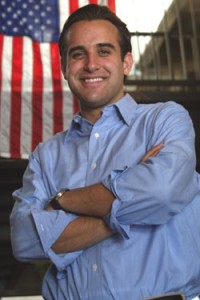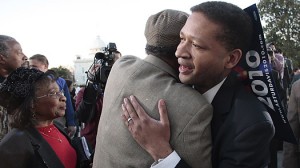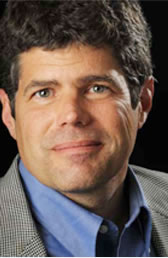By Jason Grill, on Wed May 30, 2012 at 10:00 AM ET  Politics and sports are two things that incite strong emotions in nearly every individual in this country, but they should very rarely converge. Last week the Senate Judiciary Committee announced there would be an upcoming hearing about bounties in professional football and other major sports as a result of recent allegations that the New Orleans Saints employed a system in which players would receive extra cash for hits that hurt high-profile opponents. Politics and sports are two things that incite strong emotions in nearly every individual in this country, but they should very rarely converge. Last week the Senate Judiciary Committee announced there would be an upcoming hearing about bounties in professional football and other major sports as a result of recent allegations that the New Orleans Saints employed a system in which players would receive extra cash for hits that hurt high-profile opponents.
Are they serious? Well, yes they are. Sen. Dick Durbin (D-IL) wants to examine whether a federal law should make bounty systems a crime. This week reports have surfaced that the IRS is now poking around and monitoring the situation about the payments that were made to players. The dominos are beginning to fall and political grandstanding has already begun. I am not a pollster, but if I had to guess I would assume more Americans are concerned with their pocket books and the economy right now than on professional sports bounty programs. Shockingly, I know I am going out on a limb here. Seriously though, Congress should only involve itself in sports-related matters on very rare occasions. One of those is sports gambling.
 The Final Four [took place] in New Orleans with four historically good programs. More than six million people filled out NCAA tournament brackets on ESPN.com alone. Last month the Super Bowl game garnered the prize as the highest-rated television show in United States history with an estimated 111 million people watching. The Final Four [took place] in New Orleans with four historically good programs. More than six million people filled out NCAA tournament brackets on ESPN.com alone. Last month the Super Bowl game garnered the prize as the highest-rated television show in United States history with an estimated 111 million people watching.
Reports have shown that nearly half of all American adults make some sort of wager on the Super Bowl. The time has come for Congress to open its eyes when it comes to sports gambling.
Read the rest of…
Jason Grill: Come on, Congress — Sports Gambling, Not Bounties
By Artur Davis, on Wed May 30, 2012 at 8:30 AM ET  While I’ve gone to great lengths to keep this website a forum for ideas, and not a personal forum, I should say something about the various stories regarding my political future in Virginia, the state that has been my primary home since late December 2010. The short of it is this: I don’t know and am nowhere near deciding. If I were to run, it would be as a Republican. And I am in the process of changing my voter registration from Alabama to Virginia, a development which likely does represent a closing of one chapter and perhaps the opening of another. While I’ve gone to great lengths to keep this website a forum for ideas, and not a personal forum, I should say something about the various stories regarding my political future in Virginia, the state that has been my primary home since late December 2010. The short of it is this: I don’t know and am nowhere near deciding. If I were to run, it would be as a Republican. And I am in the process of changing my voter registration from Alabama to Virginia, a development which likely does represent a closing of one chapter and perhaps the opening of another.
As to the horse-race question that animated parts of the blogosphere, it is true that people whose judgment I value have asked me to weigh the prospect of running in one of the Northern Virginia congressional districts in 2014 or 2016, or alternatively, for a seat in the Virginia legislature in 2015. If that sounds imprecise, it’s a function of how uncertain political opportunities can be—and if that sounds expedient, never lose sight of the fact that politics is not wishfulness, it’s the execution of a long, draining process to win votes and help and relationships while your adversaries are working just as hard to tear down the ground you build.
 I by no means underestimate the difficulty of putting together a campaign again, especially in a community to which I have no long-standing ties. I have a mountain of details to learn about this northern slice of Virginia and its aspirations, and given the many times I have advised would-be candidates to have a platform and a reason for serving, as opposed to a desire to hold an office, that learning curve is one I would take seriously. I by no means underestimate the difficulty of putting together a campaign again, especially in a community to which I have no long-standing ties. I have a mountain of details to learn about this northern slice of Virginia and its aspirations, and given the many times I have advised would-be candidates to have a platform and a reason for serving, as opposed to a desire to hold an office, that learning curve is one I would take seriously.
And the question of party label in what remains a two team enterprise? That, too, is no light decision on my part: cutting ties with an Alabama Democratic Party that has weakened and lost faith with more and more Alabamians every year is one thing; leaving a national party that has been the home for my political values for two decades is quite another. My personal library is still full of books on John and Robert Kennedy, and I have rarely talked about politics without trying to capture the noble things they stood for. I have also not forgotten that in my early thirties, the Democratic Party managed to engineer the last run of robust growth and expanded social mobility that we have enjoyed; and when the party was doing that work, it felt inclusive, vibrant, and open-minded.
Read the rest of…
Artur Davis: A Response to Political Rumors
By Jonathan Miller, on Tue May 29, 2012 at 1:30 PM ET We love to highlight, at The Recovering Politician, the works and thoughts of our next generation of leaders, the Milleneal Generation.
Marina Keegan was certainly in that category. Just last week, she graduated from Yale University, with a job at the prestigious New Yorker waiting. Tragically, she was killed on Saturday in a car accident.
Here’s an except from her final article, “The Opposite of Loneliness”:
We don’t have a word for the opposite of loneliness, but if we did, I could say that’s what I want in life. What I’m grateful and thankful to have found at Yale, and what I’m scared of losing when we wake up tomorrow and leave this place.
It’s not quite love and it’s not quite community; it’s just this feeling that there are people, an abundance of people, who are in this together. Who are on your team. When the check is paid and you stay at the table. When it’s four a.m. and no one goes to bed. That night with the guitar. That night we can’t remember. That time we did, we went, we saw, we laughed, we felt. The hats.
Yale is full of tiny circles we pull around ourselves. A cappella groups, sports teams, houses, societies, clubs. These tiny groups that make us feel loved and safe and part of something even on our loneliest nights when we stumble home to our computers — partner-less, tired, awake. We won’t have those next year. We won’t live on the same block as all our friends. We won’t have a bunch of group-texts.
This scares me. More than finding the right job or city or spouse – I’m scared of losing this web we’re in. This elusive, indefinable, opposite of loneliness. This feeling I feel right now.
But let us get one thing straight: the best years of our lives are not behind us. They’re part of us and they are set for repetition as we grow up and move to New York and away from New York and wish we did or didn’t live in New York. I plan on having parties when I’m 30. I plan on having fun when I’m old. Any notion of THE BEST years comes from clichéd “should haves…” “if I’d…” “wish I’d…”
Click here to read the full article in the “Yale Daily News”
By Patrick Derocher, on Tue May 29, 2012 at 12:30 PM ET Will crucial independent voters turn out in next Tuesday's California primaries? For the first time under a new procedure, California voters will be able to vote for anyone in their relevant primaries, regardless of party affiliation. Passed in 2010, Proposition 14 instituted non-partisan blanket primaries in which candidates of any party affiliation compete for a top-two runoff in the general election. Many believe that newly-empowered unaffiliated voters will be crucial to this process, but the question remains as to whether they will turn out. Groups like the Independent Voter Project are aiming to do just that. [Sacramento Bee]
They’re back. New Jersey’s most prominent bipartisan couple, Governor Chris Christie and Newark Mayor Cory Booker, seem to have gotten past a minor spat last fall, and created a “Seinfeld” parody together. It’s an old video, to be sure, but it’s worth noting for the bipartisan spirit. The video, filmed for the New Jersey Press Association’s Legislative Correspondents Club, consists largely of Booker foiling Christie’s attempts at outdoing the Mayor’s larger-than-life feats of strength and bravery. (Warning: there is Tebowing with a baby.) [Huffington Post]
If Wisconsin is a sign of things to come in November, we all have a lot to worry about. Democrats especially. As that state’s gubernatorial recall election fast approaches (also on June 5; keep your calendars open), incumbent Republican Scott Walker and his allies have massively outspent challenger Tom Barrett. (Though to be fair, Walker was not subject to the same fundraising limits as Barrett leasing up to the election.) In any event, both Walker and Barrett, the Milwaukee mayor who faced Walker in the 2010 election, have been aided by millions in outside funding, including $4.8 million from the Republican Governors Association and $4.4 million from labor groups who attacked Walker in support of Barret’s primary opponent, former Dane County executive Kathleen Falk. [Milwaukee Journal-Sentinel]
Sometimes, a state’s problem lies beyond partisan bickering and simply fall under the category of “poor choices.” Such is the case in Rhode Island, which effectively owns 38 Studios, a creator of video games. Or, as it were, a former creator of video games. In 2010, then-governor Donald Carcieri pushed for a major loan to 38 Studios, which former Boston Red Sox pitcher Curtis Schilling founded in 2006. The deal was unpopular with the public, and all three major gubernatorial candidates in 2010 opposed it. Now, after releasing precisely one game, 38 studios effectively went out of business last Thursday, taking 400 Rhode Islanders’ jobs, their health insurance, and $112 million in loan principal, interest, and fees with it. [CNN]
By John Y. Brown III, on Tue May 29, 2012 at 12:00 PM ET  One more reason I love technology. One more reason I love technology.
In the old days when you committed you were going to start a new diet you had to join a gym, buy some new work out clothes, get a heart rate watch, subscribe to an exercise magazine, and perhaps even hire a personal trainer.
Before failing at the diet and exercise plan.
But not anymore!
Thanks to the internet and smartphones, we can save time and money by bragging to our friends—and they pretending to believe us—that we are “committed” to making some major changes in our dietary lifestyle without having to spend hundreds of dollars on all these old school props.
All we have to do is download an “app” for our smartphone called “Lose It”
And then fail at the diet and exercise plan.
Sure, we’re still overweight but look at the time, money and energy we save!
Thanks technology!! You really do deliver! Despite having to put up with us too human humans.
(Caveat: Some people really have succeeded using this app. They must have either really wanted to lose weight or simply lacked the ability to be able to fool themselves.)
By Jonathan Miller, on Tue May 29, 2012 at 11:00 AM ET
By Kristen Hamilton, RP Staff, on Tue May 29, 2012 at 10:00 AM ET
Facebook inspires fashion: would you rock a ‘relationship’ bracelet? [The Cut]
Check out the trailer for The Great Gatsby that has the fashion world buzzing: [Racked]
In other Facebook news, did you know that some major fashion brands are now selling stocks on the social networking website? Is your favorite one of them? [Fashionista]
Meet the newest addition to the America’s Next Top Model cast: [Racked]
By Artur Davis, on Tue May 29, 2012 at 8:30 AM ET  There has never been much of a reservoir of respect in Barack Obama’s White House for the Republican Party. The disdain is partly the reflex of Chicago-bred operatives who found John McCain’s campaign soft and clumsy; partly the mindset of intellectual liberals who view John Boehner and Mitch McConnell as pedestrian local Civitans made good; but mostly it is the product of a worldview that sees conservatism as neither trendy nor clever, and as the fading gasp of a whiter, duller society. By all lights, Team Obama expected to dismantle Mitt Romney, who seems to them to crystallize all the inadequacies of their opposition. There has never been much of a reservoir of respect in Barack Obama’s White House for the Republican Party. The disdain is partly the reflex of Chicago-bred operatives who found John McCain’s campaign soft and clumsy; partly the mindset of intellectual liberals who view John Boehner and Mitch McConnell as pedestrian local Civitans made good; but mostly it is the product of a worldview that sees conservatism as neither trendy nor clever, and as the fading gasp of a whiter, duller society. By all lights, Team Obama expected to dismantle Mitt Romney, who seems to them to crystallize all the inadequacies of their opposition.
 So, imagine their perplexity that Romney is either slightly ahead, or tied with Obama as spring heads to summer. For all of the Obama campaign’s tendencies to discredit any polling they don’t like, the numbers tell a more or less consistent story: Gallup puts Romney’s chronically low favorable ratings at their highest point yet, about even with Obama’s; CBS/New York Times reveals that the president’s much touted embrace of same sex marriage hurts him more than it helps, and that strikingly, nearly seventy percent of the country attributes the president’s history-making on the subject to political motives. ABC/Washington Post shows that a country preoccupied with the economy believes that a Romney presidency will make it better, and that an Obama reelection will have little effect. So, imagine their perplexity that Romney is either slightly ahead, or tied with Obama as spring heads to summer. For all of the Obama campaign’s tendencies to discredit any polling they don’t like, the numbers tell a more or less consistent story: Gallup puts Romney’s chronically low favorable ratings at their highest point yet, about even with Obama’s; CBS/New York Times reveals that the president’s much touted embrace of same sex marriage hurts him more than it helps, and that strikingly, nearly seventy percent of the country attributes the president’s history-making on the subject to political motives. ABC/Washington Post shows that a country preoccupied with the economy believes that a Romney presidency will make it better, and that an Obama reelection will have little effect.
Read the rest of…
Artur Davis: Romney’s Moment
By Chris Schulz, RP Staff, on Fri May 25, 2012 at 1:30 PM ET Maharashtra sets a very hard line policy against tiger poachers. [yahoo.com]
An in depth look at off shore drilling in the Arctic. [nytimes.com]
Plants that smell?[npr.org]
Los Angeles bans plastic bags at grocery stores. More communities across the country need to follow suit. [latimes.com]
By John Y. Brown III, on Fri May 25, 2012 at 12:00 PM ET  Human motivation and how to understand it. Human motivation and how to understand it.
We all do things or say things that perturb and puzzle others. That don’t make logical sense or seem appropriate for the situation.
Why do we do it? I have a 6- pronged approach to make sense of such situations and would like to share it with you.
1) Ask “What is the pay off for the behavior?” You will often discover there is a history or story behind seemingly silly behavior that helps explain otherwise unusual behavior. Under the right circumstances, many unusual behaviors can still have a “pay off” for people.
2) Dopamine spurt. It’s remarkable how many of our behaviors are unknowingly locked into dopamine “reward system.” Running, sports, anger fits, romance, good grades, and so on–including a number of less savory behaviors are reinforced daily by our desire to get a quick hit of the brain chemical dopamine.
3) Parents. This explanation is a time-honored standby for unpleasant behavior. Tracing it back to some parental deficiency that is still having an awkward impact today. This must be used sparingly to remain credible.
4) Birth order. Sibling birth order can explain some traits and temperaments and has a good deal of solid science to back it up.
5) Philosophical-spiritual. When someone behaves badly simply understand it as the person acting the way he or she needs to at the moment as part of a larger positive process. Statements like “He’s doing the best he can with the tools he has” are often heard to describe this assessment tool.
6) Not caring. This is fast becoming my favorite strategy when trying to understand another person’s inappropriate behavior. It’s more declarative than diagnostic but works very efficiently. When someone behaves badly instead of starting down a long mental path to understand the behavior, stop. Instead, simply say to yourself “That was a really inappropriate behavior and i don’t need to understand why he did that.”
Over time many who use this last technique are able to use the shorthand, “I can’t believe he did that. What an asshole.”
|
The Recovering Politician Bookstore
|
 Politics and sports are two things that incite strong emotions in nearly every individual in this country, but they should very rarely converge. Last week the Senate Judiciary Committee announced there would be an upcoming hearing about bounties in professional football and other major sports as a result of recent allegations that the New Orleans Saints employed a system in which players would receive extra cash for hits that hurt high-profile opponents.
Politics and sports are two things that incite strong emotions in nearly every individual in this country, but they should very rarely converge. Last week the Senate Judiciary Committee announced there would be an upcoming hearing about bounties in professional football and other major sports as a result of recent allegations that the New Orleans Saints employed a system in which players would receive extra cash for hits that hurt high-profile opponents. The Final Four [took place] in New Orleans with four historically good programs. More than six million people filled out NCAA tournament brackets on ESPN.com alone. Last month the Super Bowl game garnered the prize as the highest-rated television show in United States history with an estimated 111 million people watching.
The Final Four [took place] in New Orleans with four historically good programs. More than six million people filled out NCAA tournament brackets on ESPN.com alone. Last month the Super Bowl game garnered the prize as the highest-rated television show in United States history with an estimated 111 million people watching.













